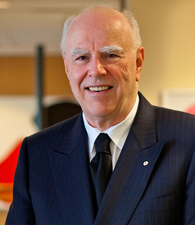A Quote by Helen Keller
For my part, I wish, with Mr. Howells, that the literature of the past might be purged of all that is ugly and barbarous in it, although I should object as much as any one to having these great works weakened or falsified.
Related Quotes
Fascism entirely agrees with Mr. Maynard Keynes, despite the latter's prominent position as a Liberal. In fact, Mr. Keynes' excellent little book, The End of Laissez-Faire (1926) might, so far as it goes, serve as a useful introduction to fascist economics. There is scarcely anything to object to in it and there is much to applaud.
The point about sales is relevant because it suggests there are cultures out there that are supporting and consuming, on a vast scale, challenging works of literature. Works of literature that in the United States would sell only a few thousand copies, if they managed to find a publisher at all. The success of these texts in Spain or Italy or wherever contributes to a kind of national conversation that we're perhaps not having here in the U.S.
Something might be true while being harmful and dangerous in the highest degree. Indeed, it might be a basic characteristic of existence that those who know it completely would perish, in which case the strength of a spirit should be measured according to how much of the 'truth' one could still barely endure- or to put it more clearly, to what degree one would require it to be thinned down, shrouded, sweetened, blunted, falsified.
The great crime which the moneyed classes and promoters of industry committed in the palmy Victorian days was the condemning of the workers to ugliness, ugliness, ugliness: meanness and formless and ugly surroundings, ugly ideals, ugly religion, ugly hope, ugly love, ugly clothes, ugly furniture, ugly houses, ugly relationship between workers and employers. The human soul needs actual beauty more than bread.
Ideally, nothing should be embraced by a consumer firmly, nothing should command a commitment till death do us part, no needs should be seen as fully satisfied, no desires considered ultimate. There ought to be a proviso 'until further notice' attached to any oath of loyalty and any commitment. It is but the volatility, the in-built temporality of all engagements that truly counts; it counts more than the commitment itself, which is anyway not allowed to outlast the time necessary for consuming the object of desire (or, rather, the time sufficient for the desirability of that object to wane).



































